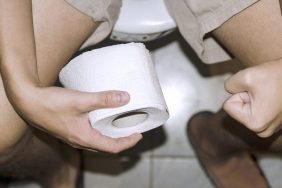People are panic-buying toilet paper due to the port strike, as reported by numerous posts on social media. Pictures of empty shelves for toilet paper and paper towels at Costco, Walgreens, Sam’s Club, and other big-box retailers are circulating on X (formerly Twitter). Congresswoman Marjorie Taylor Greene wrote on X that the United States “shouldn’t be dependent on foreign countries for all of our needs.” However, toilet paper is surprisingly not one of the products that will be affected by the dock strike, though the widespread panic is seemingly causing an artificial shortage.
Why the toilet paper shortage won’t be affected by the dock strike
The dock strike won’t impact the toilet paper shortage, because the vast majority of the toilet paper produced in the US is made domestically and is not imported through any major ports.
As noted by the Global Trade Magazine in 2020, only 7.5% of American toilet paper is imported. While the US is the largest importer of toilet paper at 9.4% of global imports, it is also the world’s largest producer of the product. Some of the top manufacturers of toilet tissue include Kimberly-Clark (Cottonelle, Scott), Procter & Gamble (Charmin), Georgia-Pacific (Quilted Northern, Angel Soft), and Clearwater Paper Corporation (Kroger, Costco).
The United States relies on domestic production because it’s the cheapest option, partly due to the country’s high supply of wood pulp, the raw material for toilet paper. Also, transporting this product from other nations is expensive because of its bulk.
In other parts of the world, like Japan, bidets are a more popular option than using toilet paper. Consumers in Japan and western Europe only use 15 kilograms of toilet paper per year, in contrast to 25 kilograms by consumers in North America.
That said, the coronavirus pandemic led many Americans to stock up on toilet paper, causing some to consider alternatives, like napkins and baby wipes. In fact, it was in such demand that people were trading toilet paper for eggs, as reported by Bloomberg.
A 2021 study published by the National Institute of Health (NIH) says that toilet paper hoarding during the COVID-19 pandemic was mainly due to perceived scarcity, anxiety from the illness, greater selfishness, and “the intolerance of uncertainty.” Consumer psychologist Paul Marsden said, per CNBC. that panic-buying is a form of “retail therapy” where consumers feel like they are “taking back control” in a situation that feels uncertain.









